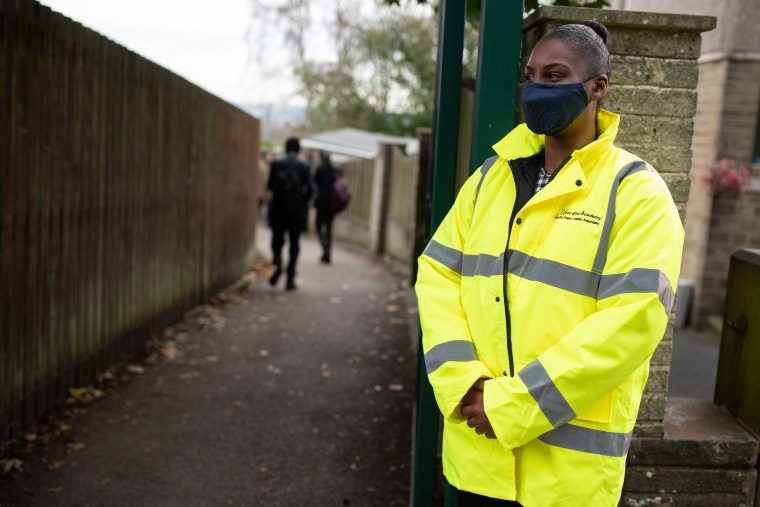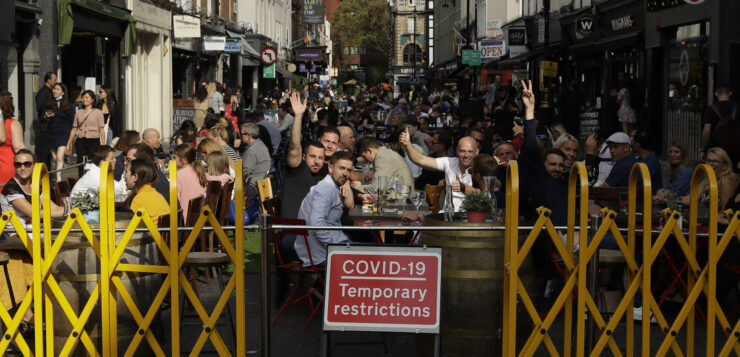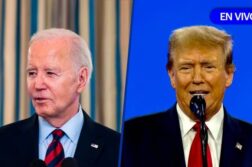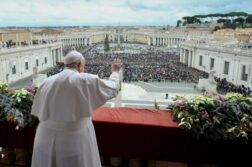«We have reached a perilous turning point,» the prime minister told Parliament. «This is the moment when we must act.»
By Alexander Smith
LONDON — British Prime Minister Boris Johnson spent much of the summer urging people to return to offices and restaurants, while aiming for a «significant return to normality» by Christmas as the coronavirus appeared to recede.
The message this week could hardly be more different.
On Tuesday, Johnson announced sweeping new restrictions in England that are likely to last for the next six months — an attempt to halt the virus as it threatens to surge through the country this fall and winter.
Bars, pubs and restaurants will be ordered to close at 10 p.m., staff and customers will be fined 200 pounds (around $256) for not wearing masks, and people are once again people being asked to work from home if they can, the prime minister said in an address to Parliament.
«I’m sorry to say that as in Spain and France, we have reached a perilous turning point,» he said, referring to similar flare-ups across Europe. «This is the moment when we must act.»

He told people to expect a «greater police presence» on the streets with «the option to draw on military support» to help enforce the new rules — a drastic move in Britain where law enforcement is typically more pared back.
It’s far from the blanket lockdown of March and April, which largely restricted people from leaving their homes and shuttered most of the economy. Schools and businesses will be able to remain open in a «Covid-compliant way,» he said.
But it will be more comprehensive than the local lockdowns that have seen restrictions imposed on parts of the U.K. this summer where infection rates have flared.
Later Tuesday, Scottish First Minister Nicola Sturgeon, who leads that country’s semi-independent government, went even further than Johnson, introducing many of the same measures and banning households from mixing indoors. Earlier, similar measures were introduced in parts of Wales and Northern Ireland.
A day earlier, Johnson’s two most senior advisers gave their own grim assessment during a televised briefing. They warned that the U.K.’s estimated 6,000 daily cases could hit 50,000 in October if left unchecked.
«If we do not change course then we’re going to find ourselves with a very difficult problem,» England’s Chief Medical Officer Chris Whitty said Monday.
Having overseen more than 41,000 coronavirus deaths — the most in Europe — Johnson and his government find themselves weathering heavy criticism from all sides.
Back in March, he was accused of acting too slowly to introduce restrictions, failing to provide enough protective equipment for health workers, and hypocrisy, after refusing to fire his top adviser, Dominic Cummings, who broke lockdown rules at the height of the outbreak.
But even as cases and deaths fell, traditional allies and enemies alike said Johnson — who won a storming election victory in December — had been guilty of a series of missteps.
«Tory backbenchers know it, his Cabinet knows it, we all know it: he’s just not serious, he’s just not up to the job,» Keir Starmer, leader of the opposition Labour Party, said in a speech Tuesday referring to Conservative politicians.
A major criticism of the government has been its inability to develop a successful test, track and isolate system. This has baffled epidemiologists, who point out that the U.K. is the world’s sixth largest economy and has had six months to get it right.
The lack of testing capacity means many people are unable to get one, or are directed to drive hundreds of miles to their nearest testing center.
Johnson has missed a host of deadlines, pledging that by the end of June all results would be delivered within 24 hours. Government numbers published last week showed that currently only a third come back within a day — and the average wait is increasing.
Dido Harding, the head of the government’s track-and-trace program for England, admitted last week that demand for tests was «significantly outstripping the capacity we have.»
This made the September return to schools chaotic, with entire grades sent home to isolate for 14 days if just one child developed symptoms.
«‘Work from home if you can’ is again, and always should have been, the government’s message,» tweeted Gabriel Scally, honorary professor of public health at the University of Bristol. «Their attempt to cajole people to get back to city center offices should never have happened. Being clear and consistent is extraordinarily important — I wish they would be!»
Johnson’s natural allies are also aghast.
More libertarian Conservatives within his own party fear he is putting the economy in further peril by going as far as he has: risking a further rise in unemployment, eroding civil liberties and endangering the education and welfare of children.
All this has caused a rift between «economic hawks» and «health doves» in Johnson’s own Cabinet. Tuesday’s announcement appears to be an attempt to sail a delicate line between them.
SOURCE: Alexander Smith is a senior reporter for NBC News Digital based in London.





